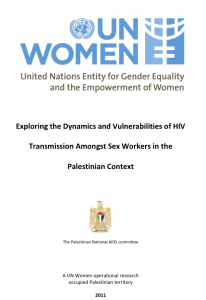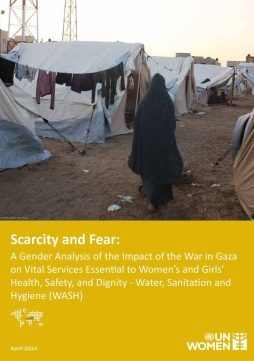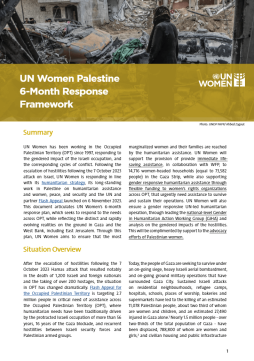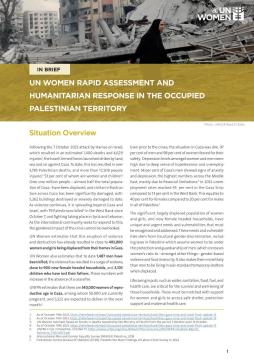Exploring the Dynamics and Vulnerabilities of HIV Transmission Amongst Sex Workers in the Palestinian Context
Supported by UN Women, Exploring the Dynamics and Vulnerabilities of HIV Transmission Amongst Sex Workers in the Palestinian Context aims to emphasize the importance of strengthening the current national HIV and AIDS policy in the oPt, dispel stigmas attached to sex work and call for greater efforts to prevent sexual exploitation and support reintegration.
The operational research publication features inputs and testimonies collated from 243 respondents (28 sex workers, 63 key informants, 64 clients, and 88 university students) during face-to-face interviews and focus group discussions from March to June 2010. It provides a formative look into sex work in the West Bank (including East Jerusalem). Through the collection of both quantitative and qualitative data from individuals with primary or secondary knowledge on sex work, the research serves to address the protection gaps pertaining to this issue and associated vulnerabilities to HIV and AIDS in the oPt.
Some key findings include:
- 64.3 percent of the women in sex work were in forced sex work
- 96.3 percent of the women respondents were victims of gender-base violence before entering into sex work; 76 percent reporting previous sexual violence
- 18 percent of the women in sex work believed that they were vulnerable to HIV
- 81.2 percent of clients did not consider themselves as vulnerable to HIV
- 81.5 percent of the women in sex work never were tested for HIV.
The publication was written and researched within the framework of the joint UN programme “Scaling up universal access to prevention, treatment and care of HIV and AIDS in the occupied Palestinian territory (oPt) through the Global Fund to Fight AIDS, Tuberculosis and Malaria.









